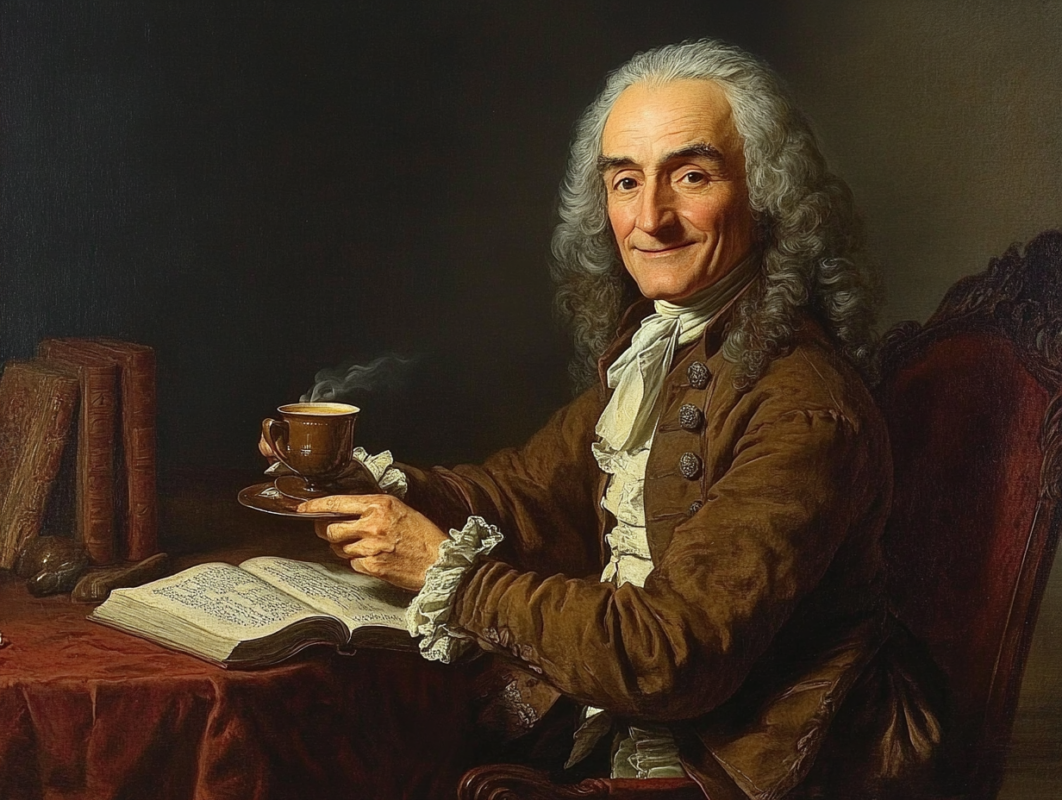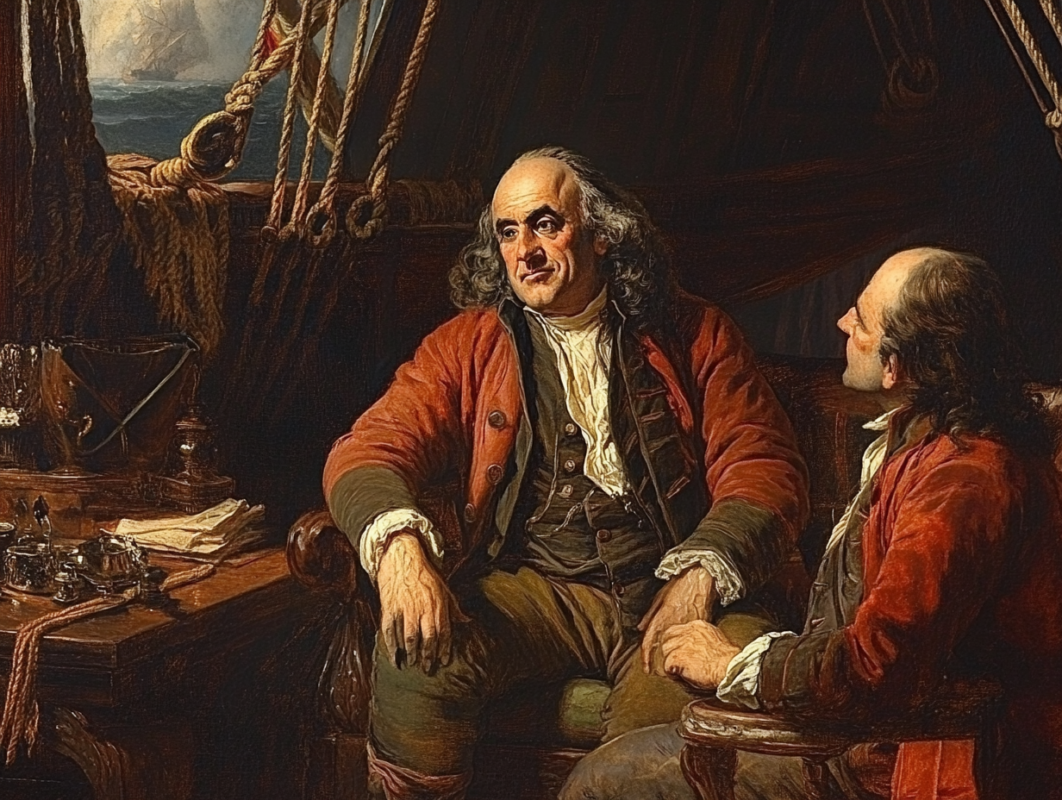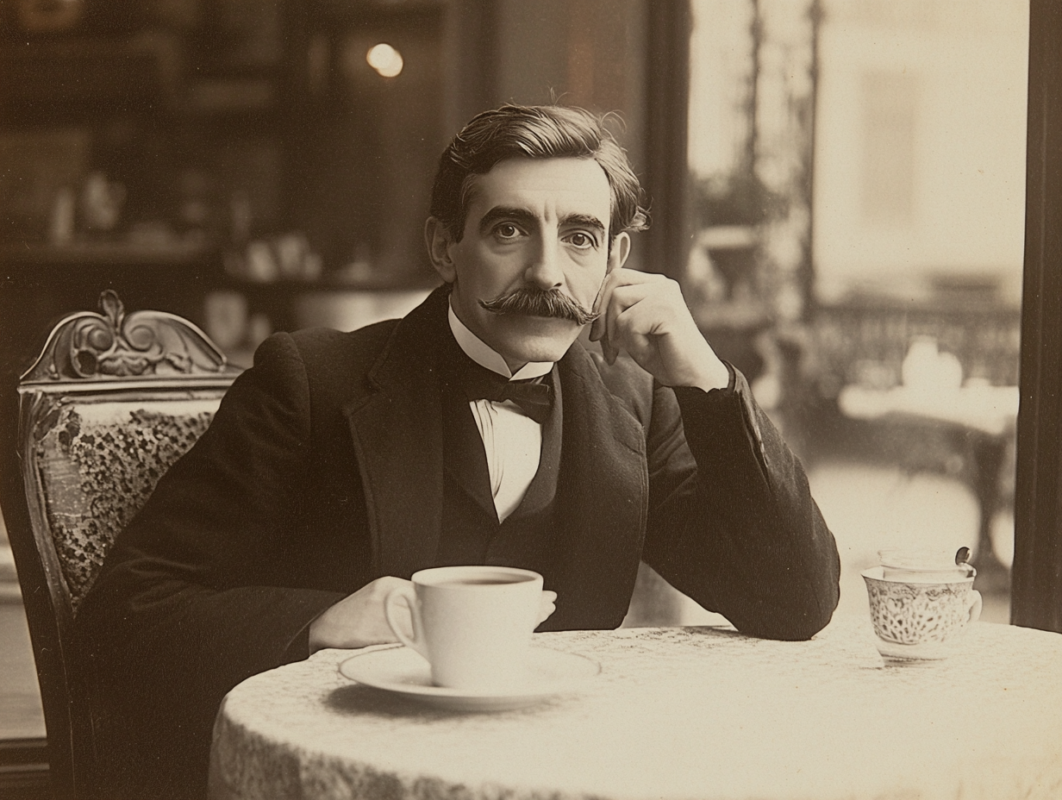Coffee & Life
Do you think you’re a Coffee connoisseur? Think again!
Do you think you’re a hardcore coffee lover? Don’t be so sure! Because in this world, many people, including famous celebrities, are even more “addicted” to coffee than you can imagine. They are captivated by the rich flavor, the seductive aroma, and the mild addictive quality that coffee brings. It’s like a natural doping, awakening the mind, inspiring creativity, and giving them endless energy to create.
Voltaire (1694-1778): A Love Affair with Chocolate-Flavored Coffee
Voltaire, the renowned French historian, philosopher, and writer, was known as a fervent coffee enthusiast. He could consume up to 50 cups of coffee a day and particularly enjoyed coffee blended with chocolate.
Voltaire’s personal physician once advised him to limit his coffee intake out of concern for his health, but Voltaire continued his habit and lived to be 84 years old. He believed that coffee provided him with the energy and inspiration for his writings.

Benjamin Franklin (1706-1790): Coffee Companion on the Atlantic Voyage
Benjamin Franklin, one of the great founding fathers of the United States, was also passionate about coffee. He frequented coffeehouses, which he considered ideal meeting points for gathering, exchanging ideas, and discussing work. Franklin’s love for coffee was so great that he never embarked on a sea voyage without his favorite drink.
Back then, crossing the Atlantic was a grueling, dangerous challenge that could take months. Amidst the vast expanse of the ocean, coffee became Benjamin Franklin’s trusted companion, keeping him alert and clear-headed for work and recording his journey.
In his diary, Benjamin Franklin shared his habit of enjoying coffee every morning. He described the flavor as “rich and fragrant,” helping him shake off sleepiness and fatigue after long nights at sea. Coffee was also his “soul mate,” helping him meditate, record observations of nature, people, and bold scientific ideas.

Franklin not only enjoyed coffee himself but also “spread the word” to those around him. He often invited crew members and passengers on board to sip coffee, chat, and share fascinating stories.
Coffee was not just a favorite drink, but an indispensable companion on Benjamin Franklin’s historical voyages. It nurtured his soul, intellect, and helped him create lasting legacies for humanity.
Louis XV (1710-1774): The King Who Grew Coffee
King Louis XV of France, also known as Louis “The Beloved,” was a huge coffee fan. In the magnificent Palace of Versailles, he built a greenhouse specifically for growing coffee. Not only did he personally take care of it and harvest it, but Louis XV also roasted and brewed coffee himself to entertain his guests.
However, there’s a fascinating story and history of coffee during the reign of Louis XIV and XV. Initially, coffee was favored by King Louis XIV and therefore escaped much criticism. However, after his death, the wine and beer industry in France, fearing the popularity of coffee, teamed up with scholars to spread the propaganda that coffee was harmful to health, causing weakness and even impotence.
Louis XV also worried that coffeehouses were breeding grounds for progressive ideas, opposing the government. He sent spies to monitor them, and indeed, many lively political discussions took place in coffeehouses, laying the foundation for both the French Revolution and the American Revolution.
Louis XV’s decision to grow coffee in the Palace of Versailles could have stemmed from various reasons: to demonstrate his sophistication, to express his interest in exotic plants, or to enjoy exclusive access to high-quality coffee. However, coffeehouses at that time, in his opinion, influenced the regime, so even though he might have liked the taste of coffee, Louis XV was wary and sought to control the influence of coffeehouses on the public.

Søren Kierkegaard (1813-1855): The Philosopher and the Sugar-Covered Coffee
Søren Kierkegaard, the Danish philosopher, theologian, and poet, was famous for his habit of drinking strong coffee mixed with a large amount of sugar. He often added so much sugar that it formed a peak in the cup, then slowly poured in the dark, rich coffee until the sugar dissolved. Kierkegaard believed that these special cups of coffee gave him energy and inspired his creativity.
Kierkegaard also owned over 50 different coffee cups, and every day, he chose one and provided a philosophical reason for his choice.
Marcel Proust (1871-1922): The Late Afternoon Coffee Ritual
Marcel Proust (1871-1922), the giant of French literature, famous for his masterpiece “Remembrance of Things Past,” was not only a master of stream-of-consciousness writing but also had a sensitive soul and habits full of “artistic” flair. Among these, his habit of drinking coffee in the late afternoon is a fascinating touch, revealing a glimpse of his soul and writing style.
Every morning upon waking, he enjoyed two cups of hot milk coffee with two croissants – a somewhat “plain” breakfast that surprised his housekeeper. Interestingly, Proust often woke up in the late afternoon instead of early morning.

It can be said that the habit of drinking coffee in the late afternoon is not just a personal preference but also a “key” to unlocking the rich inner world of Marcel Proust. It reveals the sensitive, refined soul and keen observational abilities of one of the greatest writers of the 20th century.
Coffee – a seemingly simple beverage, yet it hides a strange allure, captivating hearts from ordinary people to brilliant minds. And perhaps, this very passion has contributed to extraordinary achievements, shaping history for humanity.
*This article was compiled with references from various sources.
